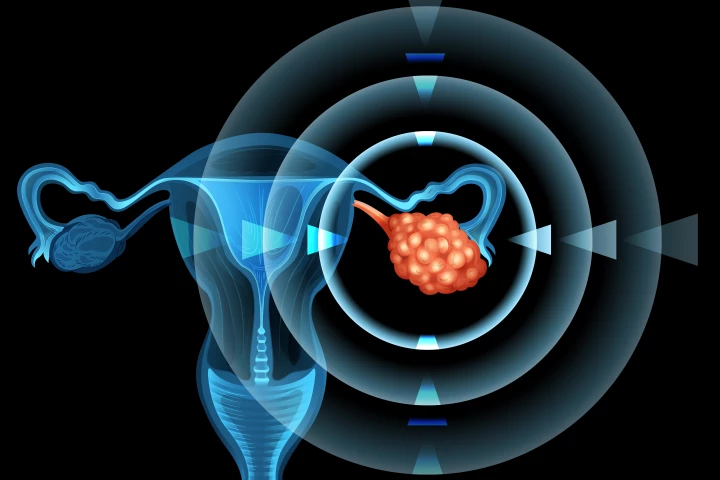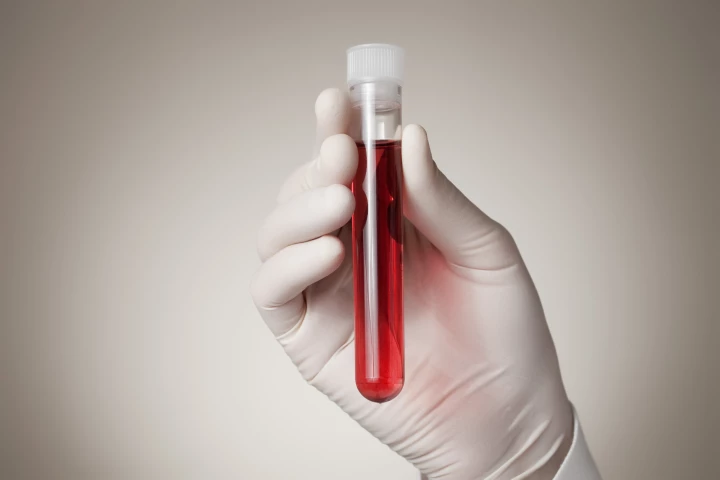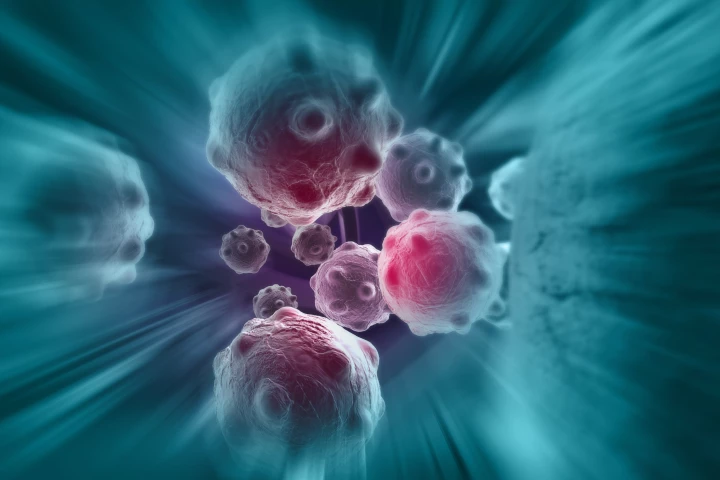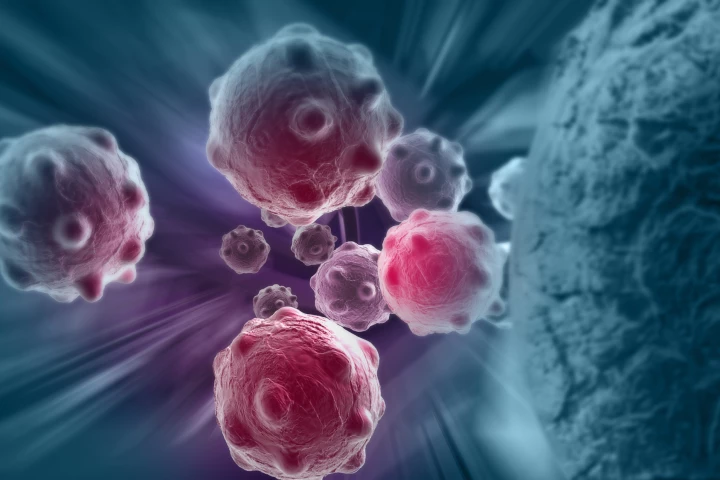Ovarian Cancer
-
The World Health Organization's cancer research agency has delivered a damning report on the soft mineral talc, calling it "probably" carcinogenic to humans, in particular powders that have been contaminated with asbestos during the mining process.
-
High-grade serous ovarian cancer is an aggressive, hard-to-treat type of ovarian cancer. A new study has identified the genes involved in forming a particular type of tissue which, if growing in tumors, is associated with a better prognosis.
-
Ovarian cancer is marked by low survival rates and a high rate of recurrence despite treatment. But a promising cancer-fighting drug is undergoing clinical trials, providing hope for women whose cancer has returned following chemotherapy.
-
Nearly 20,000 women will receive an ovarian cancer diagnosis in 2023. But new findings into how resilient cells help neighbor cells also resist chemotherapy may lead to more effective treatment of a disease that has a recurrence rate of more than 70%.
-
Ovarian cancer is caused by several genetic factors. A recent study examined whether the protection provided by taking aspirin frequently, which has been shown to reduce ovarian cancer risk, was affected by a genetic predisposition to the disease.
-
Researchers at the University of Pennsylvania have developed an electronic nose that may be able to sniff out signs of cancer from blood plasma samples. In tests, the device was able to detect a range of cancer types with over 90 percent accuracy.
-
“Synthetic lethality” is where genetic mutations that normally don’t harm a cell become deadly when paired up. Now, scientists have found a way to use this to selectively kill off cancer caused by genetic mutations, without harming healthy cells.
-
Preliminary results from a small human trial testing a novel cancer drug revealed over half the cohort had their tumors stop growing completely. The drug, called berzosertib, is now moving to larger clinical trials.
-
A new study has shown that an experimental class of cancer drugs has wider potential than previously thought. Researchers have found a new type of BET inhibitor that, in mouse tests, can target solid tumors more effectively and safely than others.
-
Cancer cells often deploy specific “don't eat me” signals to hide from immune cells. A breakthrough new study has homed in on a previously undiscovered signalling protein that, if effectively inhibited, may lead to new treatments for breast, ovarian, and other difficult-to-treat cancers.
-
An international team of researchers, from Imperial College London and the University of Melbourne in Australia, has demonstrated a new AI system that can effectively predict survival rates from ovarian cancer better than any current conventional method available to doctors.
-
A large clinical trial is underway on an exciting new blood test designed to help doctors determine whether a patient needs to undergo chemotherapy following surgery to remove cancerous tumors.
Load More











